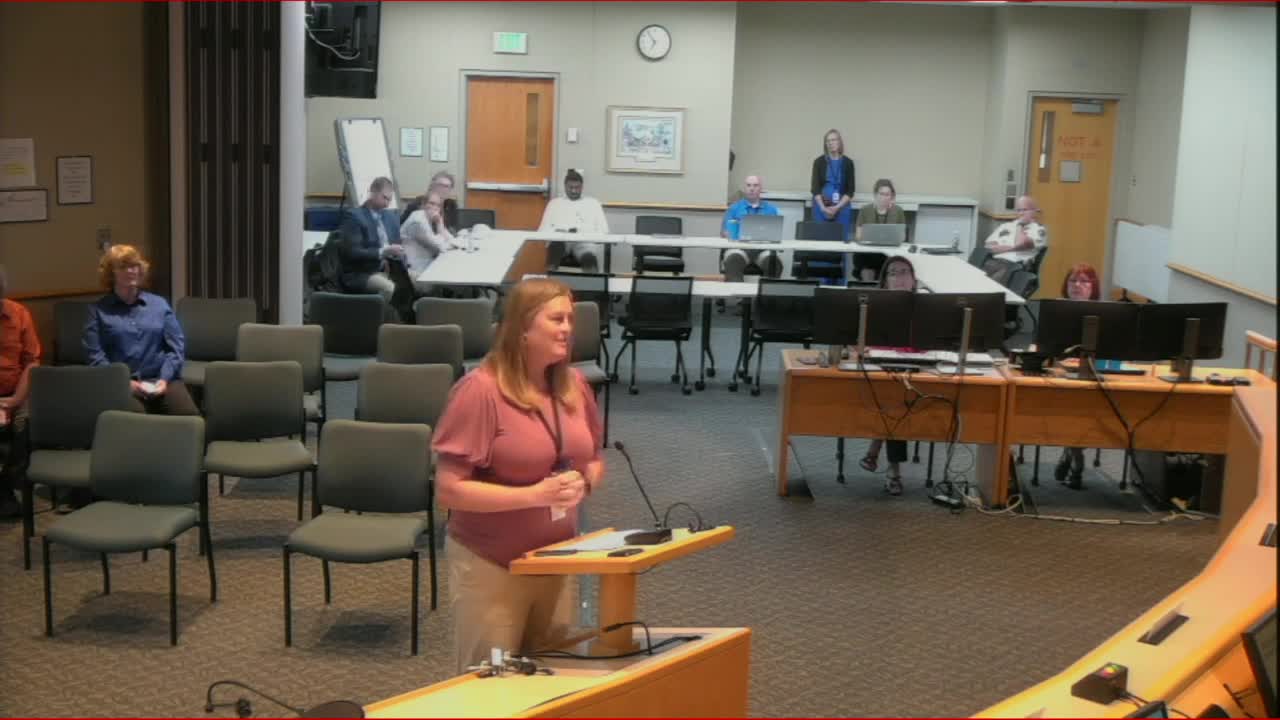County Officials Celebrate $66 Billion Budget Amid Legislative Challenges and Recent Violence
July 16, 2025 | Olmsted County, Minnesota
This article was created by AI summarizing key points discussed. AI makes mistakes, so for full details and context, please refer to the video of the full meeting. Please report any errors so we can fix them. Report an error »

In the heart of Olmsted County, the Board of Commissioners gathered to reflect on a challenging year marked by political division and unexpected tragedy. As the meeting commenced, the atmosphere was tinged with a mix of gratitude and somber reflection. The recent legislative session had concluded with the passage of a $66 billion two-year budget, a feat achieved amidst a split legislature and a backdrop of economic uncertainty.
The chairperson opened the discussion by acknowledging the hard work of county staff and legislators who navigated the complexities of budget negotiations. “It was a really hard job,” they noted, emphasizing the collaborative efforts that led to the budget's approval, despite an approximate 8% decrease from the previous biennium. The chairperson expressed condolences for a recent act of violence that cast a shadow over the legislative achievements, highlighting the emotional toll on the community.
The meeting also addressed the county's priorities, with a focus on the successful advocacy for capital investments. A $700 million capital investment bill was passed, which the chairperson described as a significant win for the county. While the budget forecast had initially appeared grim, the impact of proposed cost shifts and cuts was less severe than anticipated, bringing a sense of relief to the commissioners.
As the chairperson outlined the county's nine priorities, they remained optimistic, noting that four had seen successful outcomes. The discussion included a detailed look at the top bonding priority, the Material Recovery Facility (MRF), which is expected to remain a focal point in future legislative sessions.
The meeting concluded with a commitment to continue working towards the county's goals, reinforcing the importance of collaboration and resilience in the face of challenges. As the commissioners prepared to move forward, the spirit of community and determination was palpable, setting the stage for the work ahead in Olmsted County.
The chairperson opened the discussion by acknowledging the hard work of county staff and legislators who navigated the complexities of budget negotiations. “It was a really hard job,” they noted, emphasizing the collaborative efforts that led to the budget's approval, despite an approximate 8% decrease from the previous biennium. The chairperson expressed condolences for a recent act of violence that cast a shadow over the legislative achievements, highlighting the emotional toll on the community.
The meeting also addressed the county's priorities, with a focus on the successful advocacy for capital investments. A $700 million capital investment bill was passed, which the chairperson described as a significant win for the county. While the budget forecast had initially appeared grim, the impact of proposed cost shifts and cuts was less severe than anticipated, bringing a sense of relief to the commissioners.
As the chairperson outlined the county's nine priorities, they remained optimistic, noting that four had seen successful outcomes. The discussion included a detailed look at the top bonding priority, the Material Recovery Facility (MRF), which is expected to remain a focal point in future legislative sessions.
The meeting concluded with a commitment to continue working towards the county's goals, reinforcing the importance of collaboration and resilience in the face of challenges. As the commissioners prepared to move forward, the spirit of community and determination was palpable, setting the stage for the work ahead in Olmsted County.
View full meeting
This article is based on a recent meeting—watch the full video and explore the complete transcript for deeper insights into the discussion.
View full meeting
